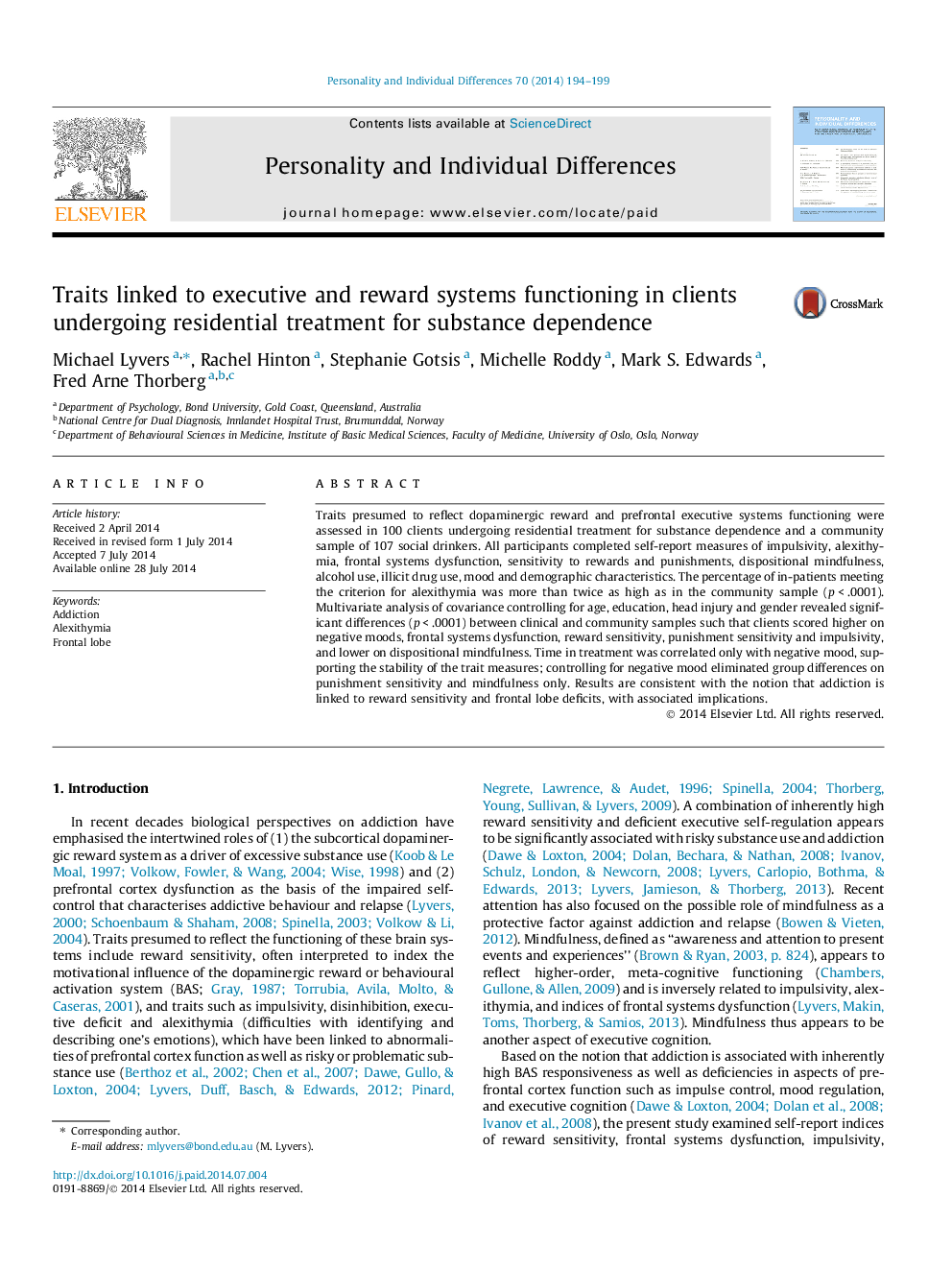| Article ID | Journal | Published Year | Pages | File Type |
|---|---|---|---|---|
| 890338 | Personality and Individual Differences | 2014 | 6 Pages |
•Nearly half of addiction treatment in-patients were alexithymic.•Clients also showed high levels of impulsivity and frontal systems dysfunction.•Results are consistent with a pre-drug trait interpretation of addiction risk.
Traits presumed to reflect dopaminergic reward and prefrontal executive systems functioning were assessed in 100 clients undergoing residential treatment for substance dependence and a community sample of 107 social drinkers. All participants completed self-report measures of impulsivity, alexithymia, frontal systems dysfunction, sensitivity to rewards and punishments, dispositional mindfulness, alcohol use, illicit drug use, mood and demographic characteristics. The percentage of in-patients meeting the criterion for alexithymia was more than twice as high as in the community sample (p < .0001). Multivariate analysis of covariance controlling for age, education, head injury and gender revealed significant differences (p < .0001) between clinical and community samples such that clients scored higher on negative moods, frontal systems dysfunction, reward sensitivity, punishment sensitivity and impulsivity, and lower on dispositional mindfulness. Time in treatment was correlated only with negative mood, supporting the stability of the trait measures; controlling for negative mood eliminated group differences on punishment sensitivity and mindfulness only. Results are consistent with the notion that addiction is linked to reward sensitivity and frontal lobe deficits, with associated implications.
